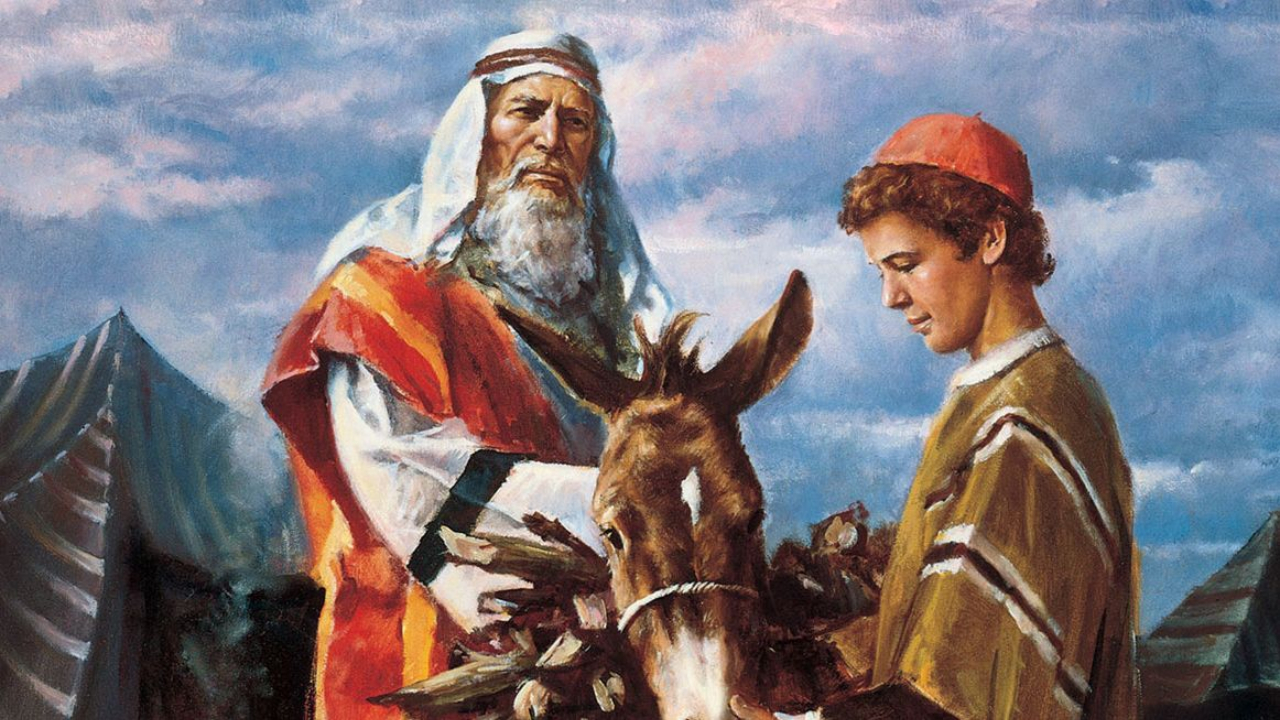
To avoid misunderstanding, it’s helpful to define what we mean and what’s in our minds when we discuss a subject. I like to go to God’s Word to determine how He defines terms.
“And he lift up his eyes and looked, and, lo, three men stood by him: and when he saw them, he ran to meet them from the tent door, and bowed himself toward the ground,” Genesis 18:2, KJV.
This is from the account of Abraham. Since context gives us clearer understanding, I will give a setting for this account. Abraham lived with his family in Mesopotamia long after the time of the flood and the building of the tower of Babel. People of Babylon believed on many and specific territorial gods but God Almighty called Abraham to leave his country, people and family to go to another place he had never previously been. Abraham trusted God enough to make this radical move with very little information. God was so impressed with Abraham’s trust that God said he would choose Abraham’s descendants to be His own people through whom God would bless every nation. There was only one problem: Abraham and Sarai, his wife couldn’t have any children. Oh yeah, another problem: Sarai was long past child bearing years; she was over 90. Abraham still trusted God and God loved Abraham.
Anyway, three men showed up and Abraham “bowed himself.” That word in the Hebrew is:
hxv shachah shaw-khaw’. It means to bow down or to prostrate oneself; that can be before a superior in homage, before God in worship, before false gods or before an angel.
So, biblically, it primarily refers to a physical posture. We don’t normally do that in our culture.
The first time the word is translated as worship, is a few pages later in Genesis 22:
“And Abraham said unto his young men, Abide ye here with the ass; and I and the lad will go yonder and worship, and come again to you. And Abraham took the wood of the burnt offering, and laid it upon Isaac his son; and he took the fire in his hand, and a knife; and they went both of them together.” Genesis 22:5, 6, KJV.
Here, the context clearly implies that Abraham’s worship includes a sacrifice. We now bump into another reference that is unfamiliar in our culture. What do these biblical understandings have to do with worship?
Rabbi’s in the first century taught differently from 21st century westerners today teach and people in the promised land during that time think differently from the way we think today. We will utilize a few methods that will help us to get more comfortable with Hebraic thought, reading the bible and understanding it’s method and message. I will ask the question from above and I will answer it by asking another question!
How do the two biblical understandings of worship pertain to you?
I will then ask you to meditate or think deeply on the two questions. We will revisit the question in the next installment of our series investigating worship! Contact me with your insights.

